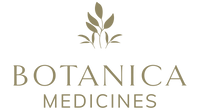Description:
Japanese Knotweed contains reservatrol and is a strong antioxidant important for the cardiovascular system and cancer prevention
Dosage:
3-7 mls per day, 20-55 mls per week
Parts Used:
Root
Main Actions:
- Analgesica
- Angiogenesis modulator
- Anti-ageing
- Anti-atherosclerotic
- Antibacterial
- Anti-cancer
- Antidepressant
- Antifungal
- Antihyperlipidaemic
- Anti-inflammatory
- Anti-microbial
- Anti-mutagenic
- Anti-neoplastic
- Anti-obesity
- Antioxidant
- Antischistosomal
- Antispirochetal
- Antithrombotic
- Anti-ulcer
- Antiviral
- Astringent
- Cardioprotective
- Central nervous system relaxant, protective,
- Hepatoprotective
- Immunomodulator
- Oncogene inhibitor
- Platelet aggregation inhibitor
- Tyrosine kinase inhibitor
- Vasodilator
- Wound healing
Key Indications:
- Cognitive disease – dementia and alzheimer’s disease
- Angina
- Atherosclerosis
- Bacterial infection
- Bartonella infection -lyme coinfection
- Cancer
- Cardiovascular disease
- Cerebral ischaemia
- Coronary artery disease
- Diabetic retinopathy
- Encephalomyelitis
- Hepatitis
- Herpes
- Huntington’s disease
- Hyperlipidaemia
- Hypertension
- Lupus
- Lyme disease
- Macular degeneration
- Motor neuron disease
- MS
- Neurodegenerative disease
- Obesity
- Parkinson’s disease
- Psoriasis
- Rheumatoid arthritis
- Stroke
- Traumatic brain injury
- Wounds, injuries, scalds and burns
Major Safety Issues:
Japanese Knotweed is prohibited for pregnant women as it is thought to induce abortion according to TCM
Caution:
Bleeding disorders – High doses of Japanese Knotweed may increase the risk of bleeding in certain individuals with particular bleeding disorders88.
Hormone sensitive cancers – Theoretically, Japanese Knotweed may worsen hormone sensitive conditions due to its phytoestrogenic properties. Until more research is done, it is recommended women with hormonesensitive cancers should avoid the therapeutic use of Japanese Knotweed

